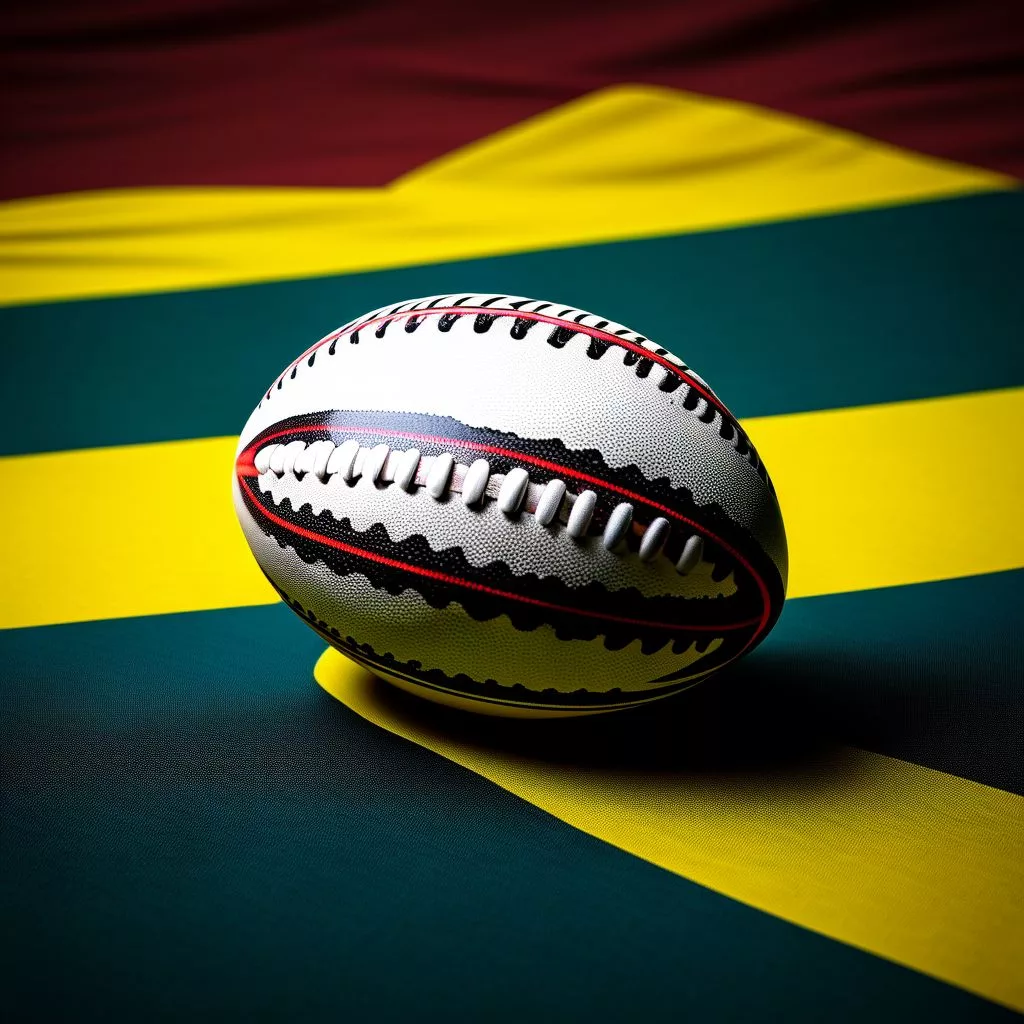The Springboks are entering an exciting new chapter as they prepare to say goodbye to coach Rassie Erasmus and captain Siya Kolisi. Their departure opens the door for fresh leadership and new talent while the team aims for a historic third Rugby World Cup win. With rising stars and strong candidates for both coach and captain, there’s a buzz of anticipation in the air. The future looks bright as the Springboks balance honoring their past with the promise of new victories. It’s a time filled with hope, change, and the spirit of rugby.
What does the future hold for the Springboks after the leadership transition?
The Springboks are poised for a significant leadership transition as they bid farewell to Rassie Erasmus and Siya Kolisi. The team must appoint a new head coach and captain to maintain their legacy and strive for a third consecutive Rugby World Cup victory while nurturing emerging talent.
Farewell to Legends and Embrace of New Beginnings
The Springboks are on the brink of a significant transition, poised to bid farewell to some of their most iconic figures while looking forward to promising new leadership. This changing of the guard brings a blend of nostalgia for the past and optimism for the future. As the team gears up for what could be their third consecutive Rugby World Cup victory—a historic “three-peat”—the focus also shifts to the leadership landscape post-2027. This pivotal moment is filled with both reflection and anticipation.
The departure of Rassie Erasmus, the mastermind behind many of the Springboks’ recent triumphs, marks the end of an era. Erasmus’s influence on South African rugby has been profound; his strategic brilliance and motivational skills have propelled the team to remarkable heights. His tenure as head coach is set to conclude after the 2027 Rugby World Cup, and the rugby community is abuzz with discussions about his potential successor.
Equally significant is the looming farewell to Siya Kolisi, the charismatic captain who has become a symbol of resilience and unity. Kolisi’s leadership has not only led the Springboks to multiple victories but has also inspired the nation. As he approaches the latter stages of his career, the question of who will inherit the mantle of captaincy becomes increasingly pressing. The narrative of this transition is rich with emotional and strategic undertones, setting the stage for a new chapter in the Springboks’ storied history.
The Legacy of Rassie Erasmus and the Search for a Successor
Rassie Erasmus’s contributions to South African rugby are nothing short of monumental. His tactical acumen and ability to inspire have left an indelible mark on the Springboks. Under his guidance, the team has reached new heights, clinching multiple titles and solidifying their status as a rugby powerhouse. As Erasmus’s contract approaches its end, the focus shifts to identifying a successor capable of continuing his legacy.
Three prominent figures have emerged as frontrunners to take over the reins: Mzwandile Stick, Felix Jones, and Daan Human. Each of these assistant coaches has played a crucial role in the team’s recent successes, making them strong candidates for the head coach position.
Mzwandile Stick stands out as a local favorite, deeply rooted in the South African rugby scene. His comprehensive understanding of the sport and unique ability to connect with players make him a leading contender. Stick’s journey has been one of dedication and passion, evolving from a player to a respected coach. His local roots provide a distinct advantage, although he faces strong competition from Felix Jones. An international figure from Ireland, Jones has quickly gained admiration within the Springboks’ community. His strategic insights and innovative approaches have been vital in shaping the team’s tactics, earning him a place among the top candidates.
Daan Human, another local coach, brings a wealth of experience and technical expertise. His influence on the team’s forward play and scrummaging techniques has been significant, garnering respect across the rugby community. Although Human appears content in his current role, his potential to ascend to the head coach position cannot be discounted. As the transition unfolds, the decision on who will lead the Springboks into the next era will be a critical one, with each candidate bringing unique strengths to the table.
Siya Kolisi: A Legacy Beyond the Field
Siya Kolisi’s impact on South African rugby transcends the sport itself. As the first black captain of the Springboks, his leadership has become a powerful symbol of unity and hope. Under his captaincy, the Springboks have achieved extraordinary success, winning two Rugby World Cups, two Rugby Championships, and a series victory over the British & Irish Lions. Kolisi’s influence extends beyond his on-field accomplishments; he has become a national icon, inspiring millions and bringing a fractured nation together.
As Kolisi approaches the twilight of his illustrious career, the search for his successor becomes a significant topic of discussion. By the next Rugby World Cup, Kolisi will be 36, likely signaling the end of his playing days. The role of captain in South African rugby is akin to a national presidency, carrying immense prestige and responsibility. The next captain will need to uphold the legacy of excellence and unity that Kolisi has established.
Leading contenders for the captaincy include Eben Etzebeth, Bongi Mbonambi, and Pieter-Steph du Toit, all of whom have demonstrated their leadership abilities in Kolisi’s absence. Etzebeth, known for his towering presence and strategic understanding, brings a formidable on-field presence. Mbonambi’s resilience and consistency make him a reliable leader, while du Toit’s versatility and work ethic embody the spirit of the Springboks. Each potential successor offers a unique set of skills and experiences, ensuring that the team’s leadership will remain in capable hands.
Navigating the Transition: Continuity and New Horizons
Rassie Erasmus’s confidence in the current leadership group highlights the importance of continuity during this period of transition. “If Siya is fit, healthy, and playing well, then I don’t think there will be a change this year,” Erasmus told SA Rugby media. This statement underscores Kolisi’s enduring importance to the team while recognizing the readiness of others to step up when needed. The seamless transition of leadership, both on and off the field, will be crucial for maintaining the Springboks’ dominance in international rugby.
As the team navigates this period of change, the blend of experienced leadership and fresh perspectives will be vital. The new coach and captain will inherit a legacy of excellence built by Erasmus and Kolisi. Their task will be to uphold this tradition while steering the team toward a new era of success. These appointments will not only shape the future of South African rugby but also influence the broader narrative of the sport.
In the broader context of rugby history, the Springboks’ journey is a testament to resilience, unity, and the relentless pursuit of excellence. The upcoming changes in leadership mark another chapter in this storied legacy, promising new adventures and triumphs. The anticipation surrounding the next leaders of the Springboks reflects the dynamic nature of the sport, where every end is a new beginning and every new beginning is a step towards greater glory.
Looking Forward: The Road Ahead
As the Springboks prepare for the future, the focus remains on achieving their immediate goal of a third consecutive Rugby World Cup victory. However, the appointments of the next head coach and captain will be defining moments for the team. These decisions will set the course for the Springboks’ journey beyond 2027, shaping the team’s strategies, culture, and aspirations.
The blend of seasoned leadership and emerging talent will be crucial in navigating this transition. The new leaders will need to build on the foundations laid by Erasmus and Kolisi, fostering a culture of excellence, unity, and innovation. Their ability to inspire and lead will determine the Springboks’ success in the coming years.
In conclusion, the impending transitions within the Springboks’ camp mark a significant juncture in the team’s history. The farewells to Rassie Erasmus and Siya Kolisi bring a mix of nostalgia and anticipation, setting the stage for new beginnings. As the team looks forward to continuing their legacy of excellence, the appointments of the next head coach and captain will play a pivotal role in shaping the future of South African rugby. The journey ahead promises to be filled with challenges and triumphs, reflecting the dynamic and ever-evolving nature of the sport.
FAQ: The Future of the Springboks
What major changes are happening with the Springboks’ leadership?
The Springboks are experiencing a significant leadership transition as they say goodbye to coach Rassie Erasmus and captain Siya Kolisi. This transition is pivotal as the team aims for a historic third Rugby World Cup victory while looking to appoint new leadership that honors the past and embraces new talent.
Who are the potential candidates to succeed Rassie Erasmus as head coach?
Three prominent figures are emerging as frontrunners for the head coach position: Mzwandile Stick, Felix Jones, and Daan Human. Stick is favored for his deep roots in South African rugby and strong connection with players. Jones, an international figure, has gained respect for his strategic insights, while Human’s experience and technical expertise in forward play make him a strong candidate as well.
What legacy has Siya Kolisi left for the Springboks, and who might succeed him as captain?
Siya Kolisi has had a monumental impact on South African rugby, becoming a symbol of unity and resilience as the first black captain of the Springboks. He led the team to multiple victories, including two Rugby World Cups. The leading candidates to succeed him as captain include Eben Etzebeth, Bongi Mbonambi, and Pieter-Steph du Toit, each bringing their own unique strengths and leadership qualities to the table.
How will the leadership transition affect the Springboks’ performance in upcoming tournaments?
The transition in leadership is crucial for maintaining the Springboks’ legacy of excellence. Both the new coach and captain will need to build on the foundations laid by Erasmus and Kolisi, fostering a culture of excellence, unity, and innovation. Their ability to inspire the team will be essential for achieving success in upcoming tournaments, including the goal of a third consecutive Rugby World Cup victory.
What are the immediate goals for the Springboks in light of these changes?
The immediate goal for the Springboks is to secure their third consecutive Rugby World Cup victory. The decisions regarding the new head coach and captain will significantly influence the team’s strategy and culture, which will be critical for realizing this goal while also preparing for future challenges beyond 2027.
How does the Springboks’ journey reflect the broader context of rugby history?
The Springboks’ journey is a testament to resilience, unity, and the relentless pursuit of excellence. The upcoming leadership changes signify a new chapter in their storied history, promising adventures and triumphs ahead. This transition illustrates the dynamic nature of rugby, where every end is a new beginning, and every new beginning is a step toward greater glory.












